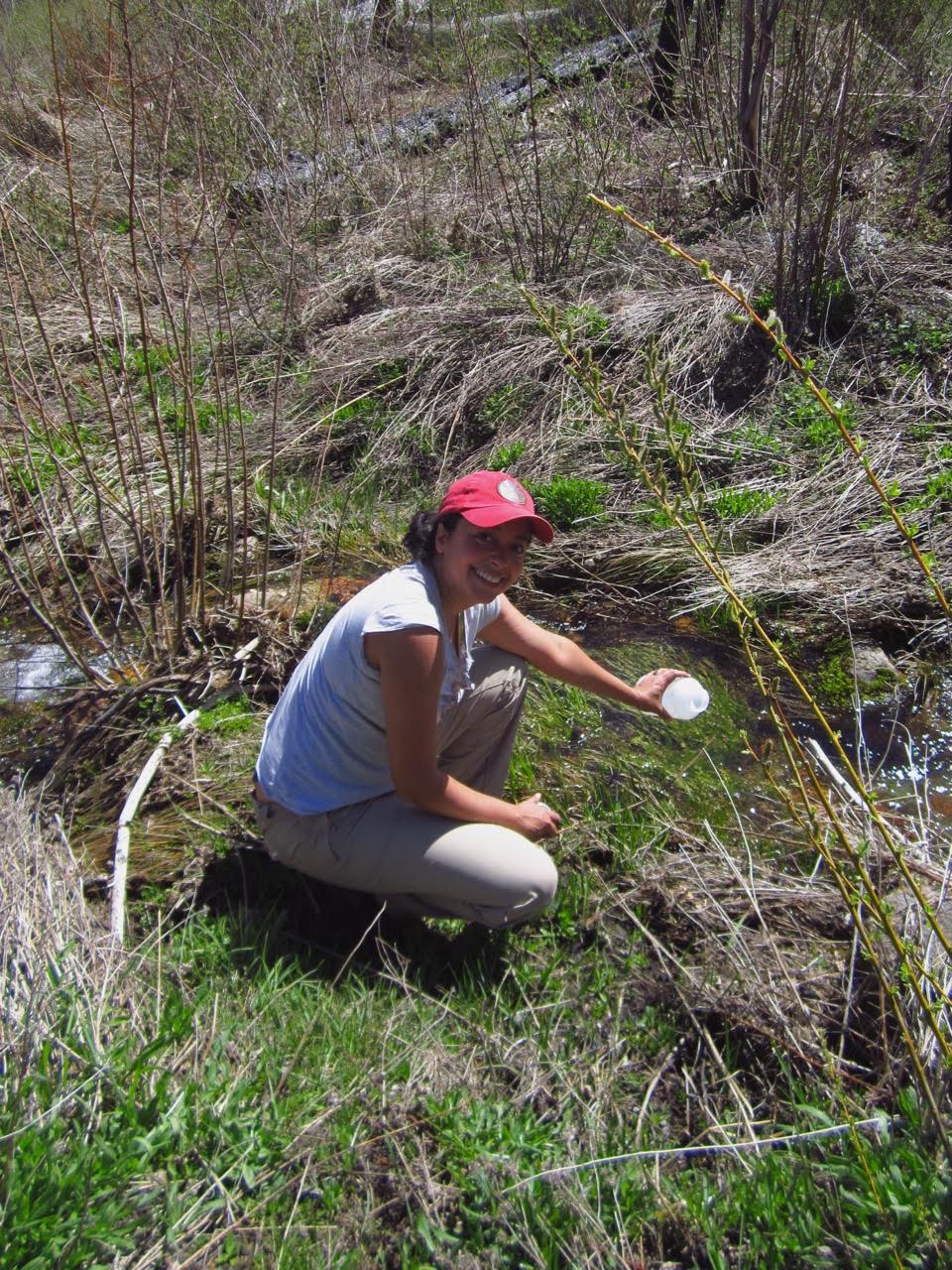Dr. Bennett Widyolar, Dr. Lauren Schiebehut and Dr. Fernanda Santos
Low-cost nonimaging solar thermal collectors by Dr. Bennett Widyolar
ABSTRACT
In this talk I will briefly discuss some of the work being done at UC Solar in response to funding calls from the California Energy Commission, Department of Water Resources, and the US Department of Energy. Using nonimaging optics and low-cost materials we are able to develop efficient collectors with an emphasis on low levelized cost of energy. Active projects include (i) a hybrid photovoltaic + thermal collector for domestic hot water, (ii) a 120 °C collector for thermal desalination, (iii) a 200 °C collector for steam generation and solar cooling, and a (iv) >600 °C collector for industrial process heating and concentrating solar power.
BIO
 |
Bennett is originally from Irvine, California. He got his B.S. in Environmental Engineering in 2010, M.S. in Mechanical Engineering in 2013, and Ph.D. in Environmental Systems at UCM in 2018. During this time he has become an expert in solar collector design (optics), the fabrication of experimental prototypes, and their characterization. In 2013 and 2015 he visited Mongolia as part of a tech-transfer program to install and commission some of the technology developed here at UC Merced. |
Rapid genetic change and population dynamics during mass mortality in a keystone species – Pisaster ochraceus by Dr. Lauren Schiebelhut
ABSTRACT
Extreme environmental disturbances are expected to increase in frequency and intensity with continuing anthropogenic climate change. However, we know little about what determines resilience or susceptibility to extreme events, or how population dynamics may influence and be influenced by population genomic change. We explore how a keystone species responded to a range-wide pandemic using quantitative field surveys coupled with genomic data. We describe the population dynamics of mortality and recovery, and determine whether this event led to a genetic shift consistent with natural selection.
BIO
 |
Lauren Schiebelhut is a postdoctoral scholar at UC Merced. She received her Ph.D. from UC Merced. Schiebelhut uses population genomic techniques to study how mass mortality can reshape biodiversity. She’s interested in clarifying the evolutionary consequences of disturbance to better understand how we can maintain stability and viability of marine populations in a changing climate. |
Dynamics of fire-transformed organic carbon in soils by Fernanda Santos
ABSTRACT
Soil organic matter (SOM) is the dominant reservoir of organic carbon (OC) in terrestrial ecosystems, storing approximately three times the size of the C pool in the atmosphere and vegetation combined. Fire transforms SOM it into more stable forms of OC known as pyrogenic C (PyC). In agriculture, PyC has been used as a soil amendment, but its fate in the environment is not fully understood. In this short talk, I will provide an overview of known and unknowns about PyC decomposition in soils and will present results of a study that focuses on improving of our understanding of how combustion temperature and soil depth can affect PyC dynamics in soils.
BIO
 |
Fernanda Santos is from Brazil. She received her bachelor’s degree in Geography from the State University of Rio de Janeiro, Brazil (2004). Fernanda earned her MA degree in Physical Geography from Hunter College, City University of New York in 2007, and in 2014 earned her Ph.D. degree in Earth and Environmental Science from The Graduate Center, CUNY. In 2014 she worked as a postdoc at Michigan State University, and in 2015 she started working in Asmeret Berhe’s lab as a postdoc at UC-Merced. In 2017 she became a recipient of the UC Chancellor’s Postdoctoral Fellowship to study the impact of fires on the biogeochemical cycle of carbon in soils and streams. |



